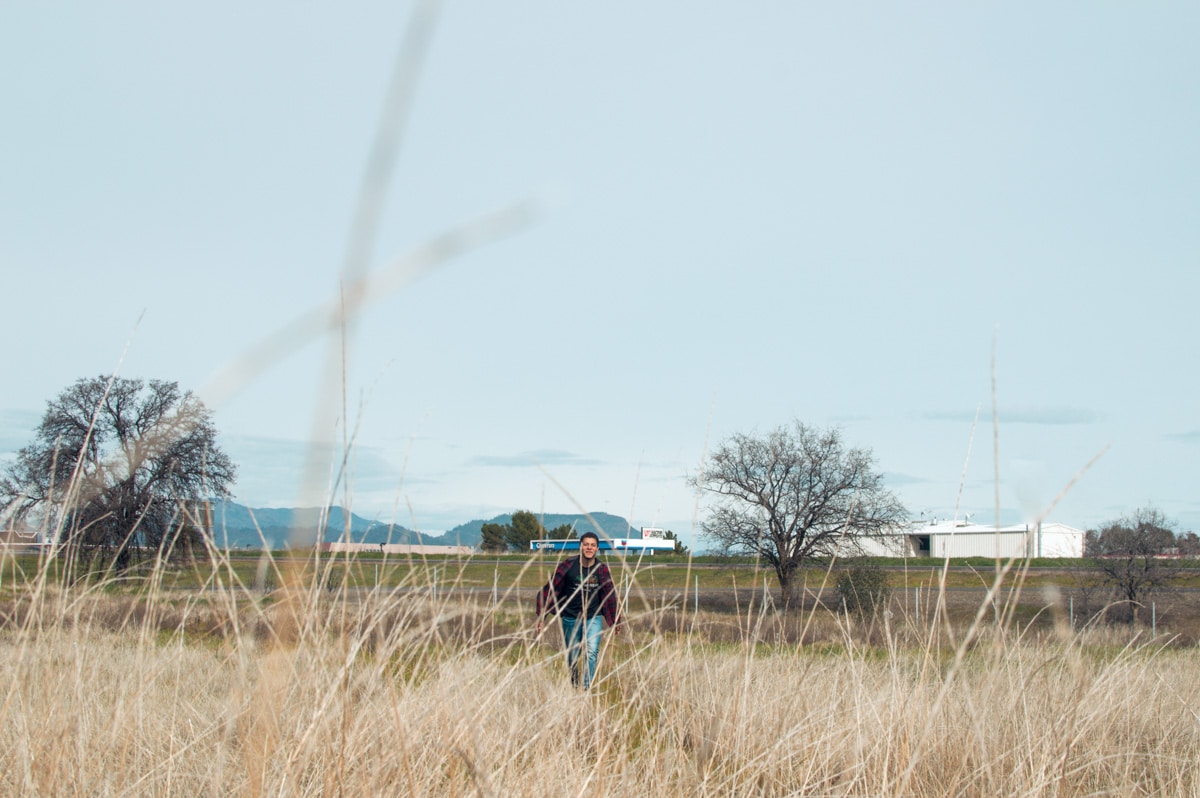If you’re reading a blog post about packing for a YWAM outreach, it probably means you are seriously considering doing a Discipleship Training School, or you’re already doing a DTS and preparing for outreach. If so, congratulations! You’ve set foot on a road that leads to an incredible journey of transformation and life-changing experiences!
If you’re reading this more out of curiosity or because you just love to travel, you’re in the right place, too. We want you to be well-prepared for the adventures that lie ahead just as much as you do. For all of us, one of our biggest questions as we look toward great adventures is usually, “What should I pack?”
A Discipleship Training School is actually comprised of two phases: a lecture phase and an outreach phase. The lecture phase is all about diving deeper into knowing God and yourself; the outreach phase will be your opportunity to draw from the spiritual growth, knowledge, and self-discovery you’ve achieved, and travel to the lost and unreached in another country (or multiple countries, in many cases) to make Him known.
A Quick Packing Tip
No matter why you’re traveling (but especially for outreaches) plan on being as mobile as possible: the less you bring, the more freedom you will have as you unpack, re-pack, and carry your necessities throughout the trip.
To pack successfully for your DTS, it is imperative to find out what the culture and climate will be like for your lecture phases AND your outreach phase—then you’ll want to bring belongings that you will need for both, rather than one bag for lecture and another for outreach, especially if you’re going to a base where you won’t be able to leave behind extra items during your outreach. Packing light might feel kind of scary, but we promise it will work out better in the long-run. We generally need a lot less than we think we do.
If you’re doing a DTS, your YWAM base should send you a packing list customized for their particular location, and your outreach leader will be able to give advice for what they have found is best to bring specifically where you will be doing outreach. This will help you know whether or not you’ll need those extra 3 pair of jeans, or if just 2 will be fine because you’ll mostly want to rock shorts and skirts in the heat. However, if you haven’t gotten your list yet, you’re still deciding which DTS to apply to, or you are researching multiple sources to decide what is universally best to pack, we’ve created this list of 15 essentials that will contribute to making your experience the best it can possibly be!
1) HIKING BACKPACK
Some Disciple Training Schools will actually require you to bring everything in a backpack. But either way, it’s usually helpful to ditch the heavy suitcase and go with a long-distance hiking backpack (at least 40 liters but no more than 90). The best backpack to carry your belongings would be:
-Designed to hold as much in as little space as possible
-Made of lightweight yet durable material
-Easy to handle
-Comfortable to wear as you move around airports, metro stations, and routes with long periods of walking.
The best way to pack a hiking backpack is to put your heaviest items in the center of the pack so that it fits comfortably against your spine, with your sleeping bag underneath, lighter items closer to the surface of your pack, and frequently accessed items on top. Packing cubes are a great way to keep all of your things organized and easy to access so that your backpack doesn’t turn into one jumbled mess of clothes.
As for fit, your hip straps should be adjusted so that they hug the top of your hip bones without pinching, and your shoulder straps’ anchor points should be touching the top of your shoulder blades without stressing your back, neck, or shoulders. (If you have trouble fitting a backpack properly, some outdoor-supply stores like REI will offer help for this if you bring your backpack to them.) This will keep you from becoming quickly worn out or even chronically injured while traveling. Pair it with a smaller, equally comfortable and durable bag as a day pack and carry-on. Although top-brand backpacks may be out of your price range as a DTS student, you might be surprised by the wide range of options there are online and in-store (such as Amazon and Wal-Mart) for quality packs that won’t break the bank or your back. Another great option is to borrow one from a friend or family member.
2) SLEEPING BAG
On an outreach, you may find yourself sleeping on the ground or in a bed that you don’t necessarily trust to be free of germs, so a sleeping bag will be far better than a blanket and sheets. But in general, they are going to be much more compact and easier to travel with. Your sleeping bag is as important as your backpack in terms of quality determining success–if you bring one that is wrong for the climate or ill-fitting for you (e.g. if you’re taller than most sleeping bag lengths accommodate), it can rob you of much-needed rest after a long day of changing the world. Most sleeping bags won’t cause this problem–just avoid the kinds that are meant for extreme outdoor conditions.
Just like backpacks, you might not be able to afford the best sleeping bag out there, but you can still invest in one th
at costs less without sacrificing the quality you’ll need. See if you can borrow one from a family member or friend to save money. The ideal sleeping bag for world travel would be:
Waterproof material
Compact and lightweight when rolled up. Look for “ultralight” sleeping bags designed for backpacking. The smaller it compacts (without compromising warmth or fit) the better.
Comfortable in multiple climates so it can be used and reused wherever and whenever you go (these are usually called “3-4 season” bags and range from 20-60 degrees Fahrenheit).
3) MINI PADLOCKS
In a busy airport terminal or crowded bus, these little guys will quickly become your best friends. Small padlocks are inexpensive and easy to find at convenience and hardware stores or online, and they not only provide protection against potential pickpockets during your travels, they also keep your bags from accidentally coming unzipped and spilling your belongings while being handled during airplane flights (this advice comes from personal experience).
Although locks with keys are great, combination padlocks will be a better choice so that you won’t be locked out of your bag should you lose a key. It’s also a good idea to write down your combination in your notebook or type it in your phone, just in case you forget!
4) FIRST AID KIT
During any traveling experience, minor things come up–cuts, colds, headaches, and fevers–so it’s important to be prepared. On a DTS outreach, your leader will most likely have a first aid kit for the entire team, but it’s not a bad idea to have a small kit of your own for situations where you may not be able to get to your team’s kit. Before leaving, go through your kit and make sure you have basic supplies such as adhesive bandages, antiseptic wipes, gauze, medical tape, tweezers, small scissors, antibacterial cream, fever-reducing medication, and pain relief medication. You can either purchase a small first aid kit in stores that offer travel supplies or buy individual first aid items to make your own.
Remember to leave any medication you purchase in its original package in case it needs to be checked at customs, and verify with your doctor or nurse that any medications you haven’t taken before will be safe for you. If you have a unique medical problem, you will also want to check with your doctor or nurse about any other items or medicine you should leave out or bring overseas. (Don’t forget that prayer can be even more powerful in healing the sick than your first aid kit! You’ll learn all about that during your DTS.)
Bonus tip: Vitamin supplements are also be a great idea! Of course, we all understand the importance of making sure we get sufficient daily meals, giving our bodies what they need. But in some locations, depending on what food you’ll be eating regularly, you may not be able to get your daily value for every important nutrient, like vitamins C and D. Again, make sure with your doctor or nurse as well as your airline and/or YWAM base that it will be appropriate for you to bring supplements. (No one wants trouble with TSA).
5) MINI SEWING KIT
Hopefully everything you will have brought is made of material that can withstand the wear and tear of your world-traveling, Gospel-spreading adventures, but it’s not uncommon for an article of clothing or even your pack to rip at some point and need repair. Because everything you’ll be bringing is going to be a necessary item, plan ahead for those 2-3 months where you won’t have extra clothing to replace an unexpected tear. A pocket-sized sewing kit can be a lifesaver when your favorite or most important items find themselves compromised. Add a small pack of safety pins to your kit for on-the-go fixes for any sudden wardrobe problems!
Don’t know how to sew? Fear not! Here’s a 5-minute video that will give you the basics for mending your clothes or backpack and impressing your travel buddies or fellow DTS students with this outreach survival skill: https://www.youtube.com/watch?v=-ynBWa5ej1Q
6) DUCT TAPE
The Name of Jesus will be the true wonder-working power behind any outreach journey you are preparing for, but it never hurts to have the additional miracle of duct tape as well. This practical adhesive will come in handy as often as your sewing and first aid kits, if not more so.
7) WATERPROOF POUCH
Usually marketed toward outdoor enthusiasts who engage in recreational activities on the water, one of these is just as useful to any YWAMer or traveler for protecting your water-sensitive belongings from the elements. Keep your money, passport, and small electronics safe and dry while you’re waiting for a city bus in the rain, trekking through a small river, doing evangelism on the beach, or engaging in recreational water activities.
The Great Commission, more than an average thirst for adventures, will often take you to environments that require an extra-close eye on your stuff, one of these pouches with a neck strap is also great for wearing under your jacket or shirt when it could otherwise be easily stolen.
8) WATER BOTTLE
The Lord wouldn’t call Himself your source of living water if water wasn’t necessary for your everyday well-being! No matter where or why you’re traveling, avoiding dehydration is a must. However, an outreach is especially going to look like long days spent in cities or villages sharing the love of Jesus, praying for the sick, encouraging the hurting, and helping local organizations and churches with mission work. Remember to take care of yourself as well as those you are ministering to during this intense and wonderfully wild period of ministry!
One of the best and most basic ways to keep yourself healthy and energized is drinking plenty of water, so invest in a sturdy, travel-friendly water bottle that you can easily attach to your day pack for hands-free walking and working.
9) ESSENTIAL OILS
We used some of these on a daily basis during one of our YWAM Redding outreaches to Greece—there’s a reason they are named “essential!” While there are countless essential oils out there for you to choose from, we recommend bringing along a tiny bottle of each of these. Make sure the bottle’s volume meets the ounce requirements of your airline and that no one on your team is allergic:
Lavender- Improves sleep, relieves headaches, inflammation, and sunburn, and alleviates stress with its soothing aroma. Sprinkle a few drops on your pillow before you go to sleep or apply onto irritated skin.
Tea-tree oil- You can buy tea-tree shampoo at the store to prevent lice, but a longer-lasting and cheaper alternative is to add about 10-12 drops of tea-tree oil to every 8 ounces of water in a spray bottle. Leave the spray bottle on the bathroom counter so your team can spray it on their hair every morning and night to keep your outreach lice-free. This is especially helpful if you are around children a lot during outreach. It also works as a hand sanitizer and soothes insect bites and sunburn.
Peppermint- Great for days that you feel tired, the sme
ll of pure peppermint oil helps you focus and wake up unlike anything else. Sprinkle this oil on a pillow or towel and inhale to help clear congested airways and make your senses more alert. Add a few drops to drinking water or tea for an upset stomach. To reduce a fever, rub peppermint oil across the soles of your feet and the back of your neck.
10) SANDALS
For shower floors and bathrooms, hot weather, wearing around your hostel or house—flip flops or water-proof sandals are an easy-to-pack, easy-to-wear staple for preventing any foot hygiene problems you could otherwise pick up off the floor unknowingly along your travels.
11) ADAPTER
If you plan on bringing any electronics, a universal adapter will allow you to internationally charge your cell phone or laptop without worrying about having to use the wrong type of outlet for your electronics or doing confusing power conversions. If you’re going to a YWAM base in another country for you DTS, this will also be important for your lecture phase. There are great sources online to find out what type of adapter you will need for any location. Adapters are easy to find online or you can purchase one at a store that offers travel supplies!
12) PHRASEBOOK or LANGUAGE APP
When you find out what country you’re going to for outreach, you won’t be expected to fluently learn a new language, but being prepared to share the Gospel with another culture includes being ready to pick up common phrases and words that the people you meet will use! Seeking to communicate with locals in their own language will show that you want to honor their culture as you spread God’s love. And no matter why you’re traveling, it’s always a good idea to know how to say hi or ask what time it is or where the toilet is.
Find a travel-size phrasebook for the location’s dominant language and have fun practicing in the weeks beforehand with your friends or outreach teammates. There are also apps you can download that can help you start picking up the language quickly and easily. We recommend the free app Duolingo (https://www.duolingo.com/) paired with a phrasebook for locations where you won’t be able to use your phone.
13) JOURNAL
At YWAM Redding, we’ve discovered that journaling what the Lord speaks to you personally during DTS is even more necessary and sacred than writing down notes in your lectures—although notes are important too! Don’t give up this special daily time with Jesus when your outreach begins. Record the miracles you see happen when you pray for people, the testimonies that unfold, the growth you continue to see inside yourself and your team, and the general adventures that you will inevitably have!
In the months and years to come, you’ll find yourself moved every time you look back on the stories from this significant chapter in your life, and you will not want to forget any meaningful details or secrets that the Lord reveals just for you. Your journal will continue to be an essential long after this particular experience ends.
14) BIBLE
Your Bible is your most necessary and practical item to bring with you on any and every outreach! (Even if you aren’t traveling for an outreach, but are a believer, don’t forget that we are called to be salt and light! Sharing Jesus’ love for the lost is something that we are called to do, and given grace to do, at ALL times.)
While you share the Gospel with the world, let the Gospel itself fill you up with the words of God every morning that He gives you. Never forget to carry His ultimate love letter to you in your backpack of essentials and in your heart. If you have extra space in your pack, add a travel-size Bible or two to pass on to someone in need of God’s Word (if they can read the language the Bible is written in, or even better, if you can find one in their native language!).
15) AND THE MOST IMPORTANT ESSENTIAL OF ALL… A HEART FOR THE NATIONS!
No matter why or where you’re traveling, a heart that sees the way Jesus sees with readiness to serve His creations will allow you to interact with people out of genuine love and care even on days that you feel exhausted, frustrated, or anxious.
For you DTSers, your lecture phase will be about your own growth and spiritual transformation and that of your fellow students, but your outreach phase focuses on being a light and a servant to others, both strangers and friends alike. Be there for your teammates when they have a bad day, support your outreach leader with honor and cheerfulness, and serve the believers and non-believers around you with a heart of humility and hope. You will be living in community from day one of your DTS, and although you may sometimes find your mission-oriented YWAM community a challenge to adjust to, you are also in one of the most unique opportunities of your life for the Lord to show you what His church looks like outside the four walls of a Sunday meeting.
LOVE is the one thing you will need to bring, yet will also receive, the most. Don’t forget that the God who IS love is walking alongside you every step of the way. Grab His offered hand with excitement for this season of your life and be ready for a wild ride full of love, friendship, worship, adventure, and growth!
Happy packing!





